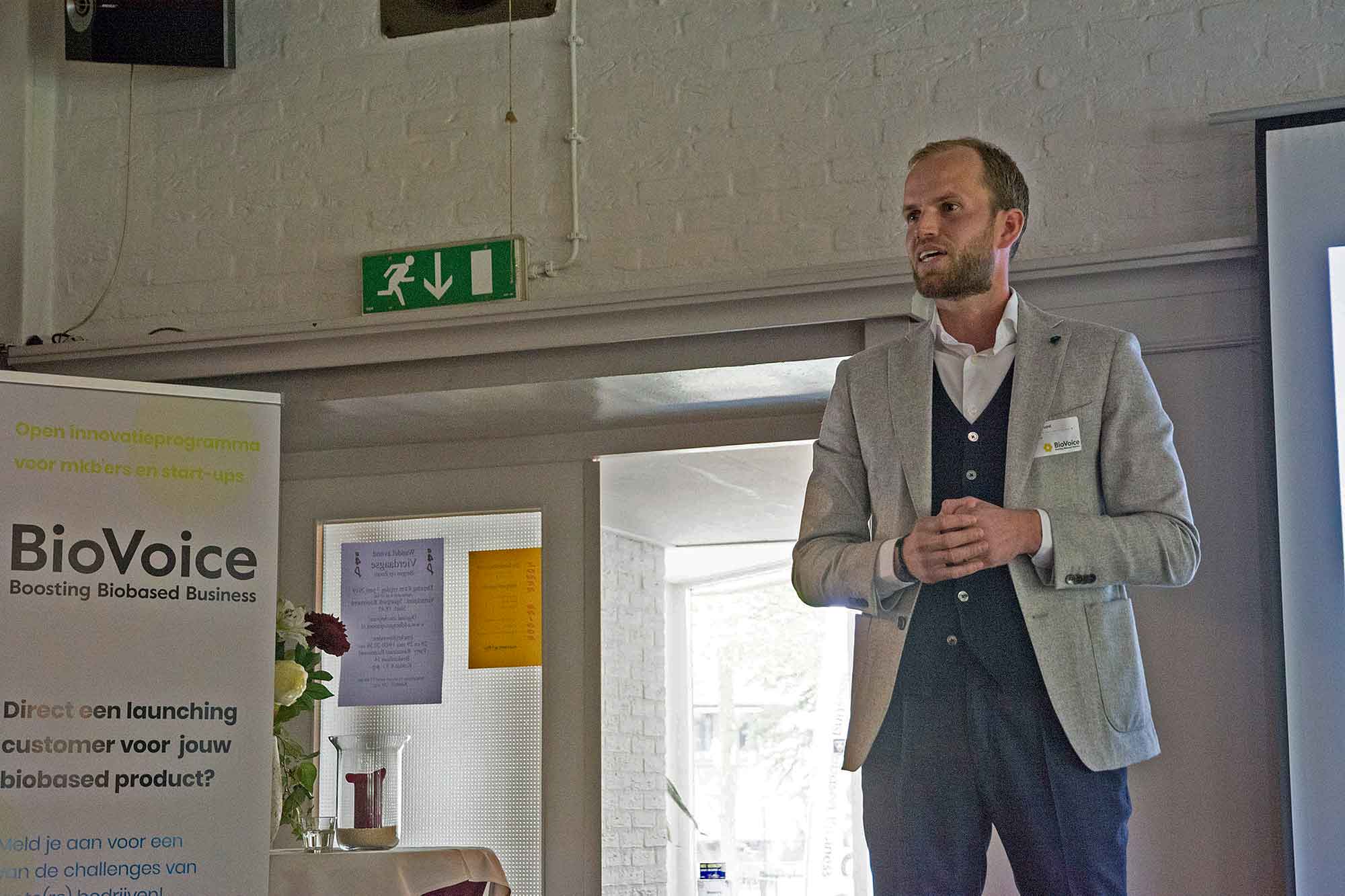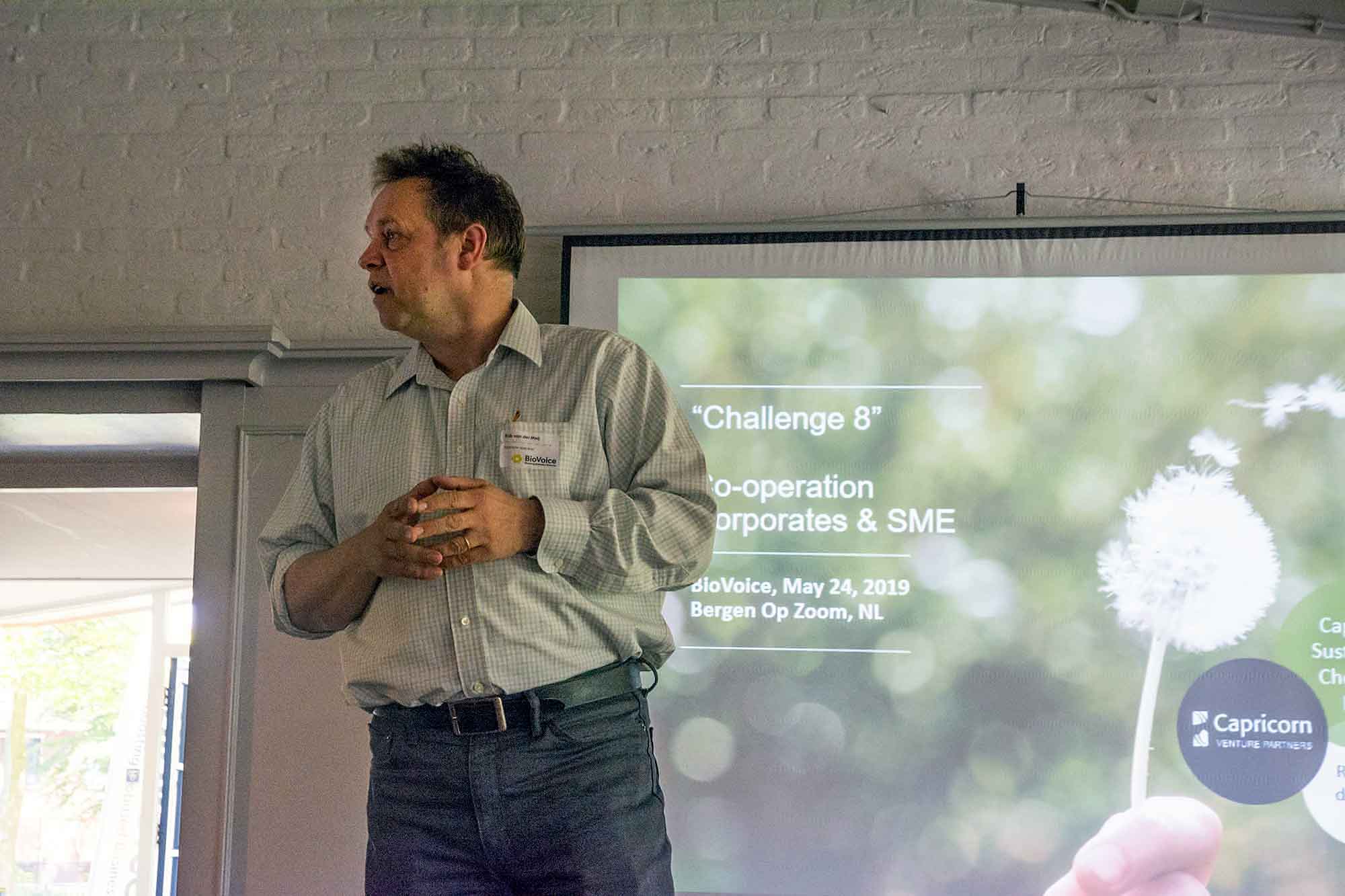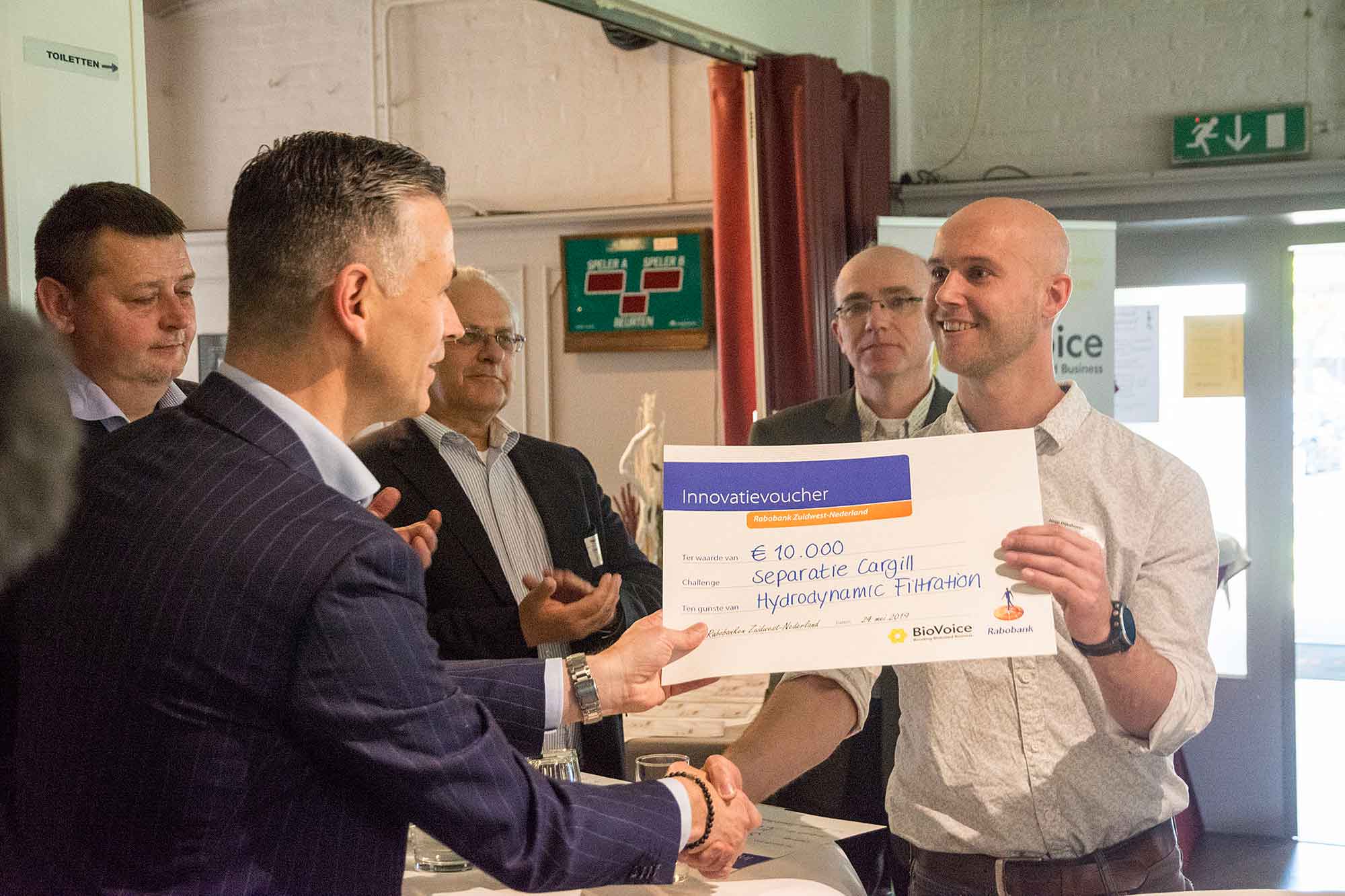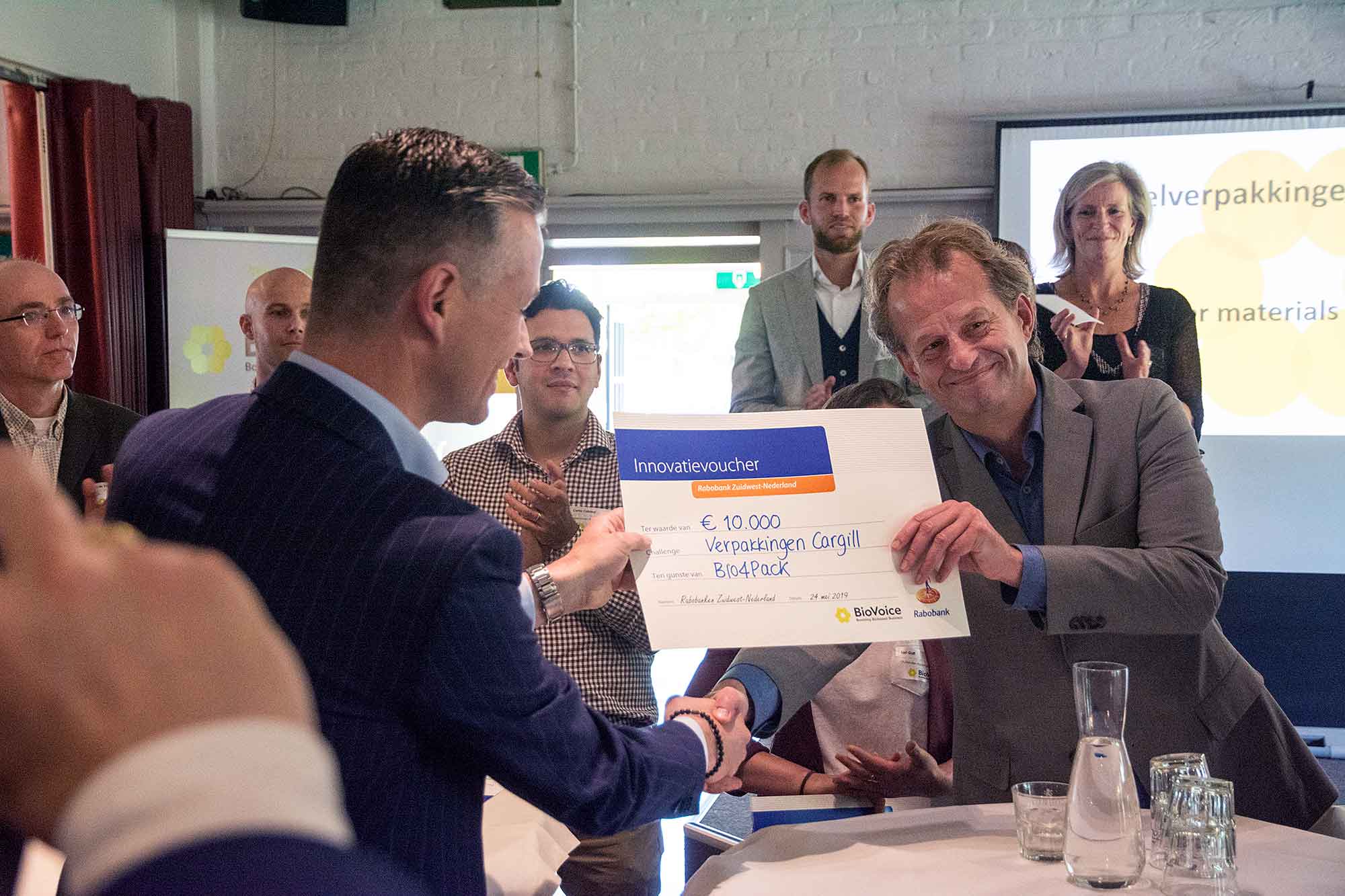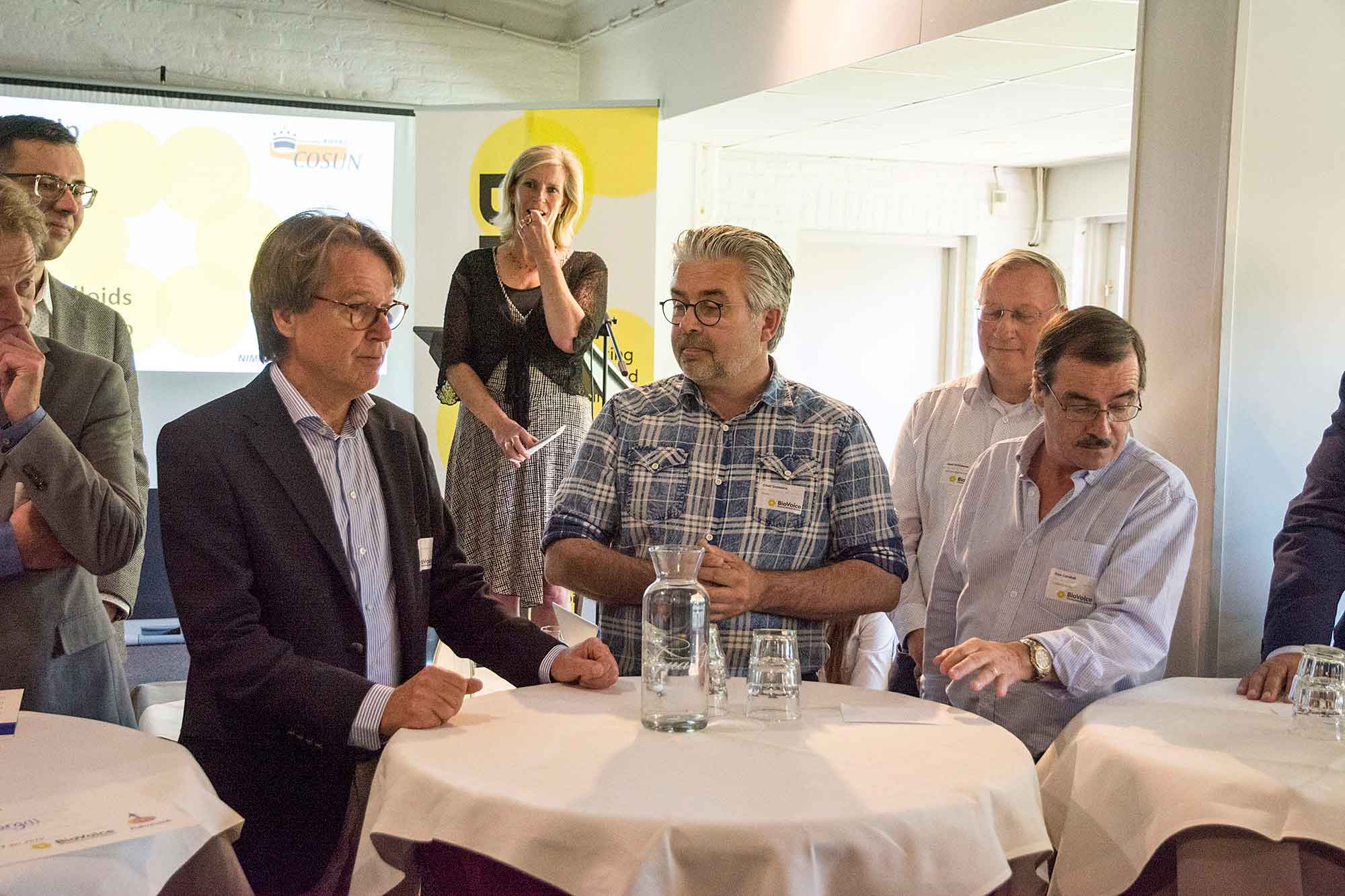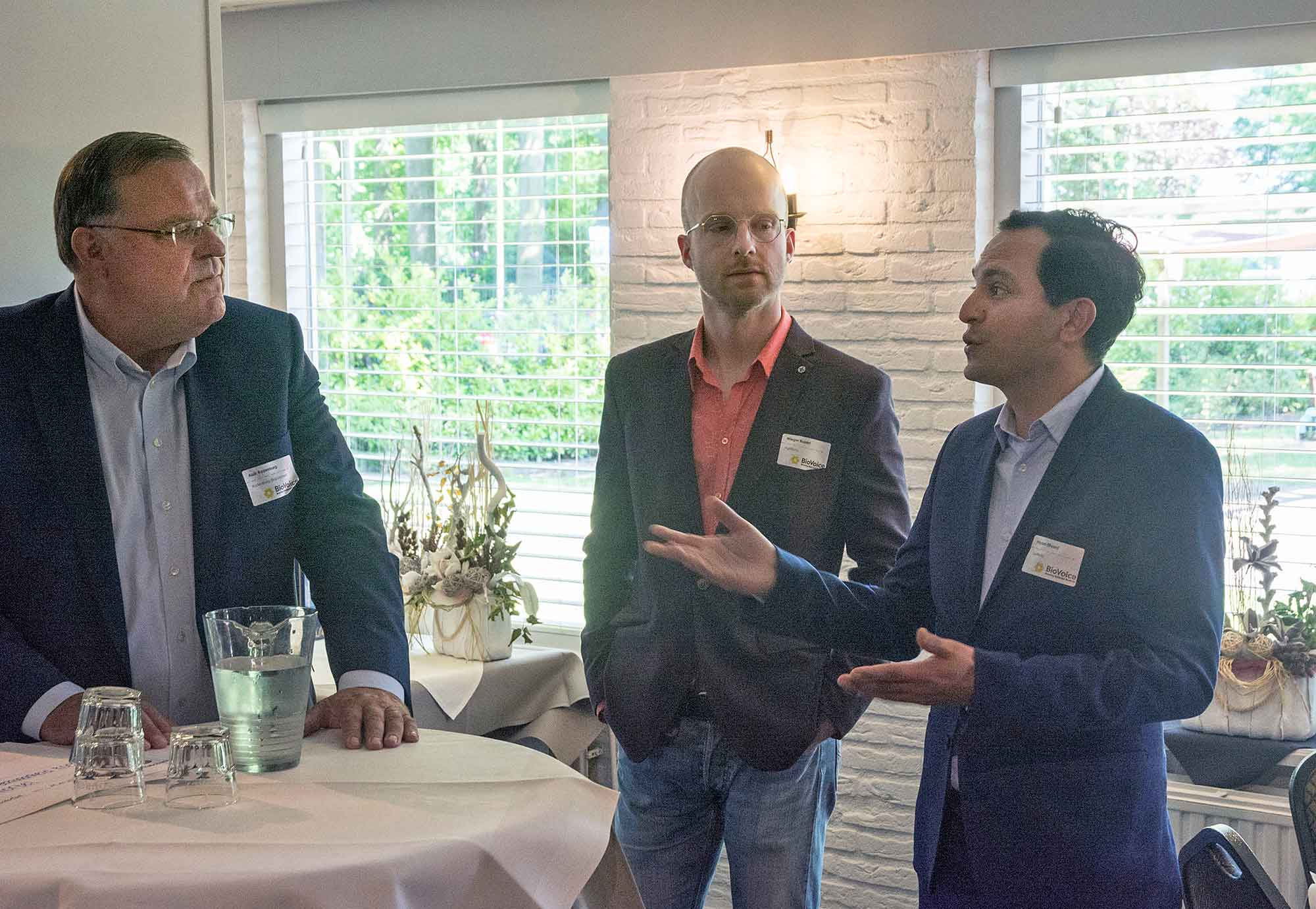BioVoice is a Southern Netherlands innovation challenge where large companies work alongside SMEs. Programme Manager Bob Houpst: “While it’s true that SMEs are very busy with bio-based solutions, they’re often working in isolation, on a ‘technology push’ basis. But that is not always in line with market demand. On the other hand, innovation issues are often put aside by large companies who know exactly what the market needs, because of a lack of time. We’ve tackled these issues, these challenges, and set them out so as to give SMEs the opportunity to devise and develop solutions. Doing so lets us contribute to the transition to a bio-based economy.”
Dinosaurs
It doesn’t always go without saying that large companies work with start-ups however, notes Rob van der Meij, Senior Investment Manager of the European venture capital fund Capricorn Sustainable Chemistry Fund. These are two worlds that don’t know each other too well. Start-ups believe that corporates are ‘dinosaurs’ with which you can’t cooperate, for instance. And large companies regard start-ups as being flexible, innovative, quick and go-getters. “That’s not the reality. Large companies are more open to cooperation than ever before. They offer access to the market, act as launching customers, bring in knowledge and are active in open innovation. The BioVoice challenges are a good example of this. However, start-ups don’t meet the ideal either. They’re often very inexperienced, are sometimes unrealistic, and often there’s a lack of communication.”
Cooperation is often difficult because expectations and working methods diverge, points out Van der Meij. For example, SMEs complain about the bureaucracy, governance, intellectual property rules and slow payments by large companies. “My message to small businesses: don’t complain about such things. Just learn to deal with them. You can’t ask people in large companies to circumvent the governance rules. That’s not going to happen. And if you need money to invest, just be clear and honest about it. Don’t try to fight it!”
Huge diversity
There were seven challenges in BioVoice, five of which led to innovation contracts, with a wide variety of participants, from established companies to pre-starters.
Cargill joined BioVoice with no fewer than three challenges. “Cargill wants to improve its ecological footprint,” explains Wim de Vriendt, Production Technology Manager. “One of the ways we do this is by saving energy during dewatering.” Evodos from Raamsdonksveer may have a solution. The company operates mainly in the oil sector, but is going to make its patented separation technology at the Green Chemistry Campus in Bergen op Zoom suitable for biomass.
Cargill’s second challenge is to separate maize and wheat into proteins, fibres and starches. De Vriendt: “We’re looking for innovative companies outside our normal field of expertise, the food industry, to see where things can be improved.” One of the solutions is from Elma, a pre-starter with potential, which has been given a ‘wildcard’ to continue under Cargill’s mentoring. Greencovery is a Wageningen-based start-up that uses Delft technology to recover valuable amino acids from industrial waste streams. Hydrodynamic Filtration has developed an energy-efficient filtration and fractionation method, and will use it to set up a pilot project with Cargill’s biomass flows.
Challenge 3 tackles innovative new biodegradable food packaging: “We want to see if we can make innovative packaging from Cargill’s products, which we can also apply ourselves,” says Business Development Manager Edwin Berens. For example, the Rotterdam-based start-up Outlander Materials produces non-toxic and compostable biomaterials offering an alternative to ‘single-use plastics’ from residual flows, usually from beer-brewing. Bio4Pack has been on the market for some time with biodegradable packaging and, alongside Cargill, will focus on making the process flows of a large restaurant chain more sustainable. The Belgian start-up 72p has developed an innovative technology to make binders from protein-rich waste streams.
A few cents a kilo
Cosun is seeking “fresh new ideas to valorise the by-products of sugar production,” says Innovation Manager Ad de Laat. “They yield just a few cents a kilo these days.” The Gova laurel nursery in Nispen has a technology for extracting laurel oil, which can then be used as a crop protection product. They are investigating whether this can also be done with sugar beet, but also, conversely, whether this crop protection product could be used in beet cultivation. Irish research company CyberColloids extracts bioactive components from food waste streams and turns them into food supplements, fat substitutes and binding agents, among other things. Sugar beet could be a new feedstock. Nimaro Ageno Consult, member of the Green Chemistry Campus and known from its pyrolysis research, will investigate how beet pulp can be processed in polyurethane hard foam.
Oyster farming
The controllable degradability of bioplastics is a challenge for Rodenburg Biopolymers, and it has led to three contracts. “Our bioplastics are more expensive and heavier than ordinary plastics, so we look for added value in the end product,” says Director Aaik Rodenburg. Dutch Water Tech wants to use these biopolymers to make oyster farming more sustainable (so that no more microplastics end up in the oysters). Designer Rinke van Remortel from Goes (known from the environmental organisation Dopper), has smart ideas for influencing controllability “with different types of materials and techniques.” Amsterdam start-up AgroBiota wants to use benign microorganisms to break down bioplastics.
A total of € 124,570 in innovation vouchers was awarded to these companies in this first BioVoice round. Of this, € 100,000 came from Rabobank and the rest from the province of Noord-Brabant.
Development phase
The final development phase of this BioVoice round is underway now that the contracts have been concluded and the vouchers have been distributed. This will take place at the Green Chemistry Campus in Bergen op Zoom, among other locations. “It will be a long and very intensive phase,” notes Petra Koenders, Director of the Green Chemistry Campus. “For most parties it will take a few months, but there will also be peaks of up to three years.” The BioVoice team will continue to set up the next round in the meantime. A number of new ‘challengers’ have already applied. Agro&Chemie will continue to track the developments.
This article was written in cooperation with Biobased Delta.


